Israel and Hamas: A year of war
Yolande Knell, a BBC Correspondent in the Middle East, explains what's happened in the war over the past year
- Published
On 7 October 2023, the armed Islamist group Hamas launched a surprise attack on Israel.
The events of that day marked the beginning of a year of war affecting not just Israel and Gaza but the wider Middle East and the world beyond.
The October attack shocked Israel's leaders, its people and many others around the the world.
Hundreds of people died in the attack, and many others were kidnapped and taken back into Gaza.
Following 7 October, aiming to destroy Hamas, the Israeli government decided to bomb Gaza, where Hamas is based, and send their armed forces into the territory.
Thousands of people have died in Gaza in the months since then.
Although Hamas and Israel have been enemies for many years, this war is the largest outbreak of violence in decades.
We look back on what happened, why, and what the future might hold.
Israel and Hamas: What's happening?
- Published18 December 2023
What is life like for children in Israel and Gaza? Video, 00:02:03
- Published11 October 2023
Advice if you're upset by the news
- Published29 August 2022
What happened in October 2023?
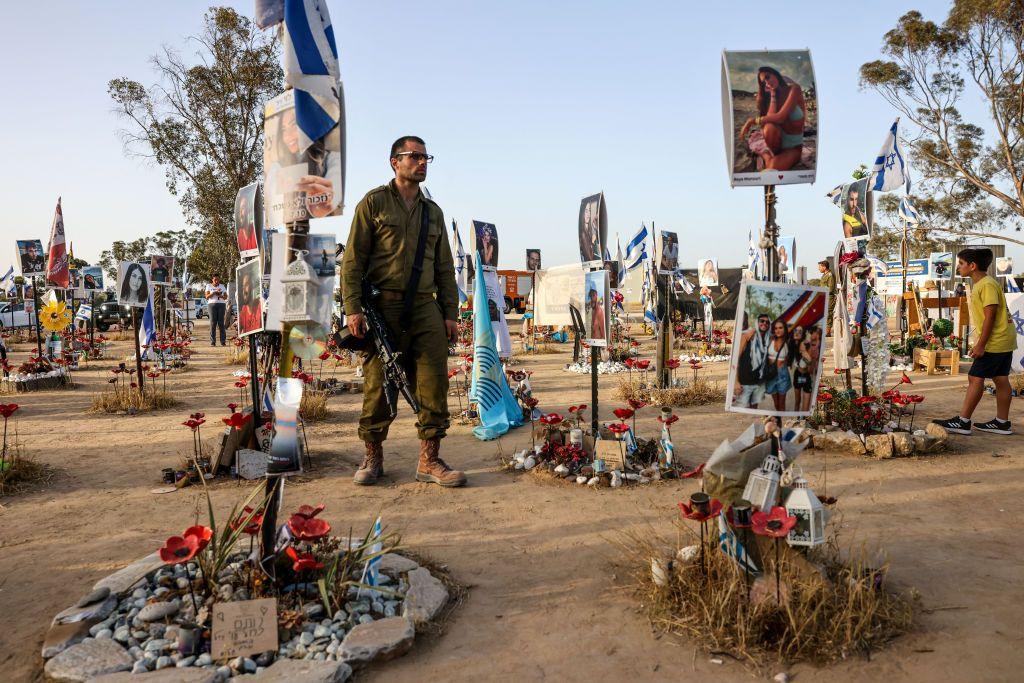
A soldier stands in a memorial to those killed on 7 October 2023
On 7 October 2023, dozens of armed fighters mainly from a Palestinian armed group called Hamas crossed into Israel from Gaza in a surprise attack.
Gaza is a 41km (25-mile) long and 10km-wide territory between Israel, Egypt and the Mediterranean Sea.
About 2.3 million people live there and it's ruled by Hamas, which has fought Israel many times.
Hundreds of Israelis died in the October attack, and more were injured.
Hamas targeted civilians as well as soldiers and thousands of rockets were also launched by Hamas towards Israel.
Hamas also kidnapped around 240 people and took them back to Gaza as hostages. Some of them have been returned, others have died or are still being held.
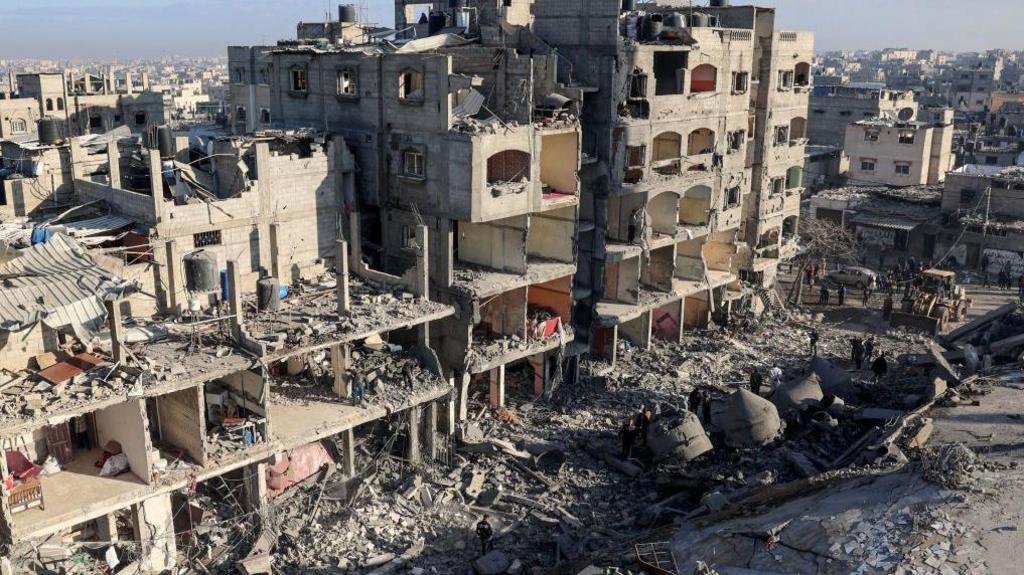
Large areas of Gaza are in ruins following a year of war
Israel responded to the attack by closing the main routes in and out of Gaza and beginning air strikes.
It said it was targeting Hamas, not ordinary people who live there, but thousands of people have been killed or injured in the airstrikes and large areas of Gaza have been destroyed, meaning many more have been forced to leave their homes.
Following air strikes, the Israeli government also sent in their armed forces with the aim of destroying the Hamas group and removing its leaders.
More like this
Kids in the UK talk about relatives in Israel and Gaza
- Published19 October 2023
What's happening in Israel? Video, 00:00:56
- Published9 October 2023
'I queue to get food for my family but there's not enough' Video, 00:03:07
- Published10 April 2024
Ceasefire, aid and continued fighting
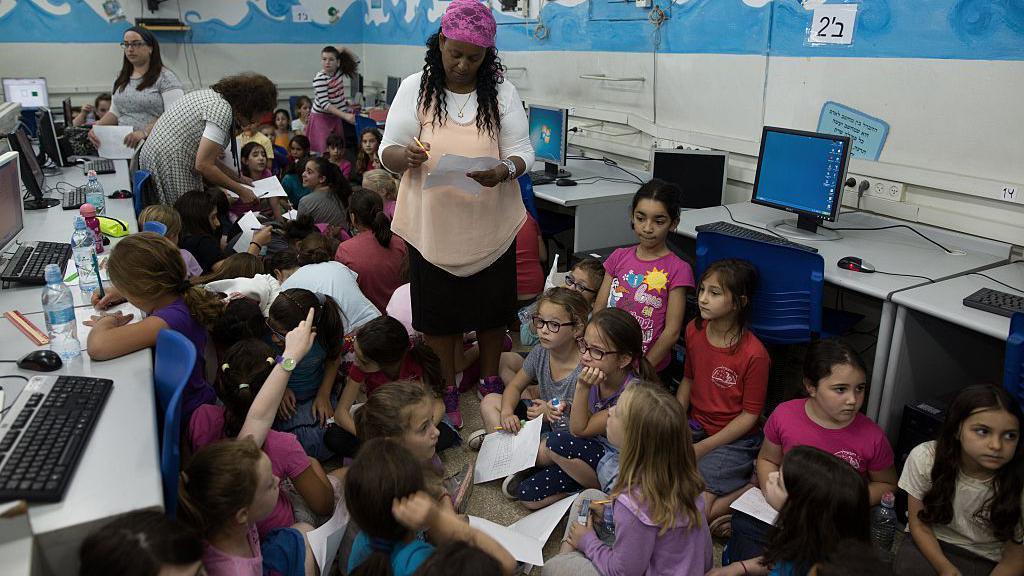
Israeli children have a lesson underground as part of an air raid drill
Many leaders around the world were shocked by what happened on October 7 and supported Israel's right to defend itself.
However as Israel's war in Gaza continued, many aid agencies said they had to leave, as it was too dangerous to work there.
They also said it was becoming impossible to get food and medical aid to the ordinary people in Gaza who needed it, and a humanitarian crisis was developing there.
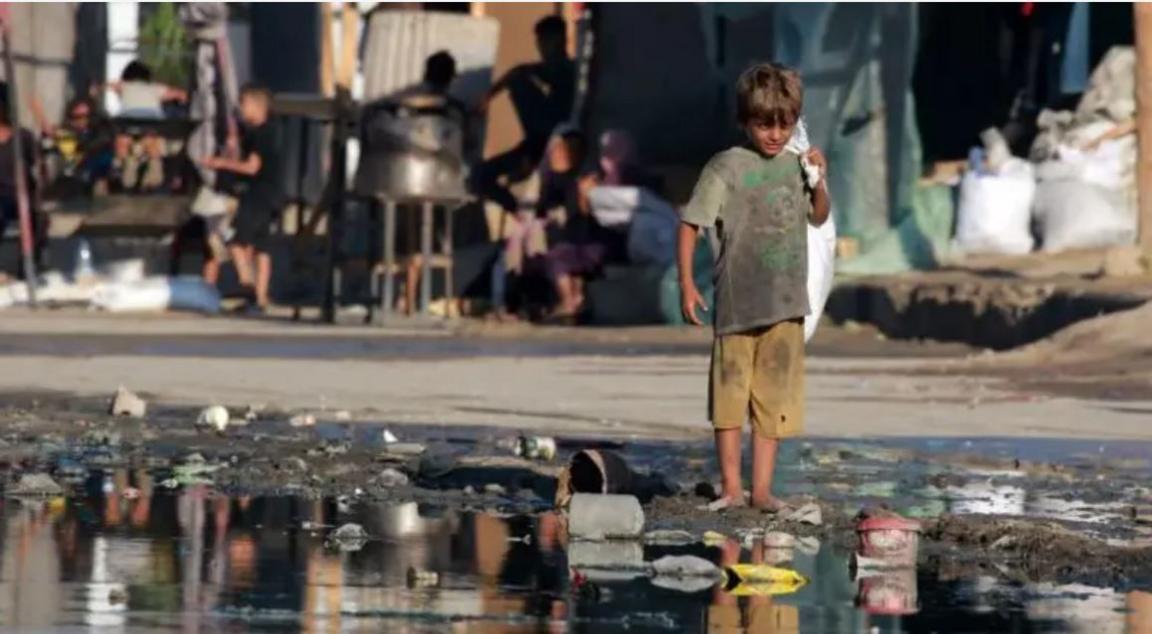
Experts warned of a humanitarian crisis in Gaza
Following calls from the United Nations (UN), talks with other countries from the region, and pressure on each side from its supporters, a truce was declared in November 2023.
The plan was that Israel would allow aid into Gaza, free some prisoners in Israeli jails and in return Hamas would release some of the hostages and stop firing rockets into Israel.
Both sides delivered on some of their promises, but the peace didn't last.
After a week, each blamed the other for breaking the terms of the deal, fighting started again and there have been no ceasefires since then.
What is the history of the conflict over Gaza?
You can see where Israel and Gaza are on this video map
The origins of the conflict between Israel and Palestinians go back more than 100 years.
Britain took control of an area called Palestine after World War One. There was a Jewish minority and Arab majority living there at the time.
Over the next few decades many more Jewish people arrived, with many of them fleeing persecution in Europe, and seeking a homeland after the Holocaust in World War Two.
In 1947, the United Nations voted for Palestine to be split in two between a Jewish state and an Arab state. Jewish leaders agreed to the plan but the Arab side did not.
Britain could not solve the differences and left in 1948. Jewish leaders then declared the creation of Israel.
Palestinians objected to this new state, and a war followed. Neighbouring Arab countries invaded Israel.
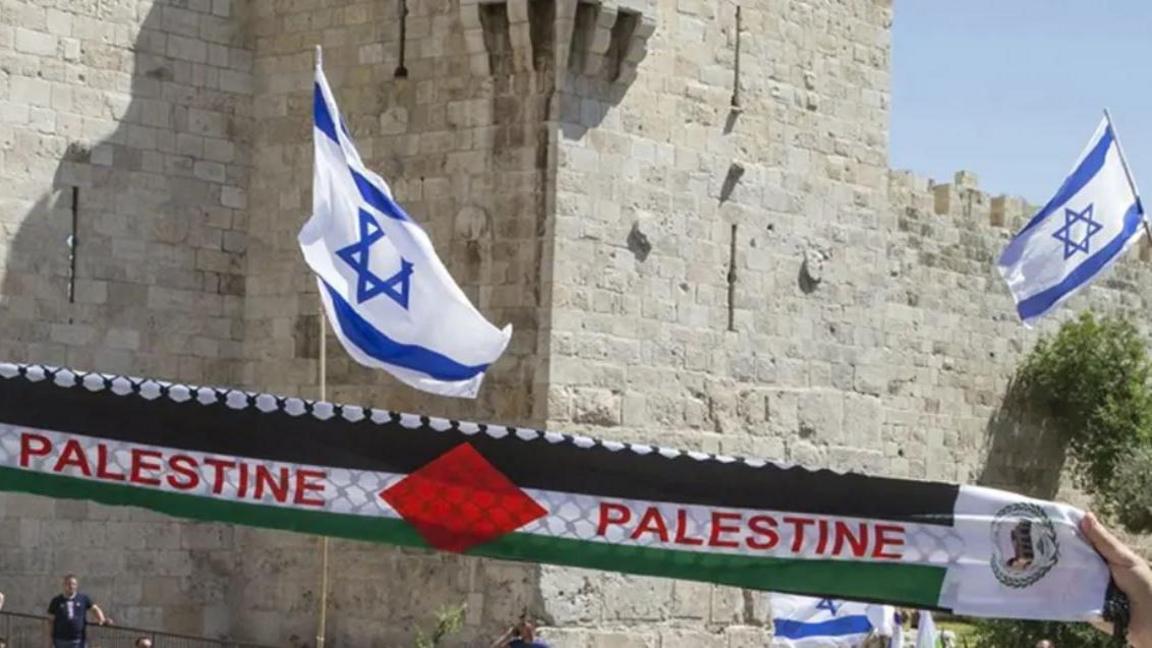
The conflict has much to do with the history of the region
By the time the fighting stopped Israel controlled most of the territory, but Gaza was controlled by Egypt and another area of Palestine, the West Bank, by Jordan. These two areas contained thousands of Palestinians who fled or were forced out of their homes in what was now the new Jewish state.
Then, in 1967, after another war, Israel occupied Gaza and the West Bank, and Israeli troops stayed there for years. Israelis hoped they might exchange the land they won for Arab countries recognising Israel's right to exist and an end to the fighting.
Israel left Gaza in 2005 but soon after, a group called Hamas won elections and took control there. Hamas refuses to recognise Israel as a country and wants Palestinians to be able to return to their old homes - and has repeatedly used violence to try to achieve its aims.
How has the world reacted?
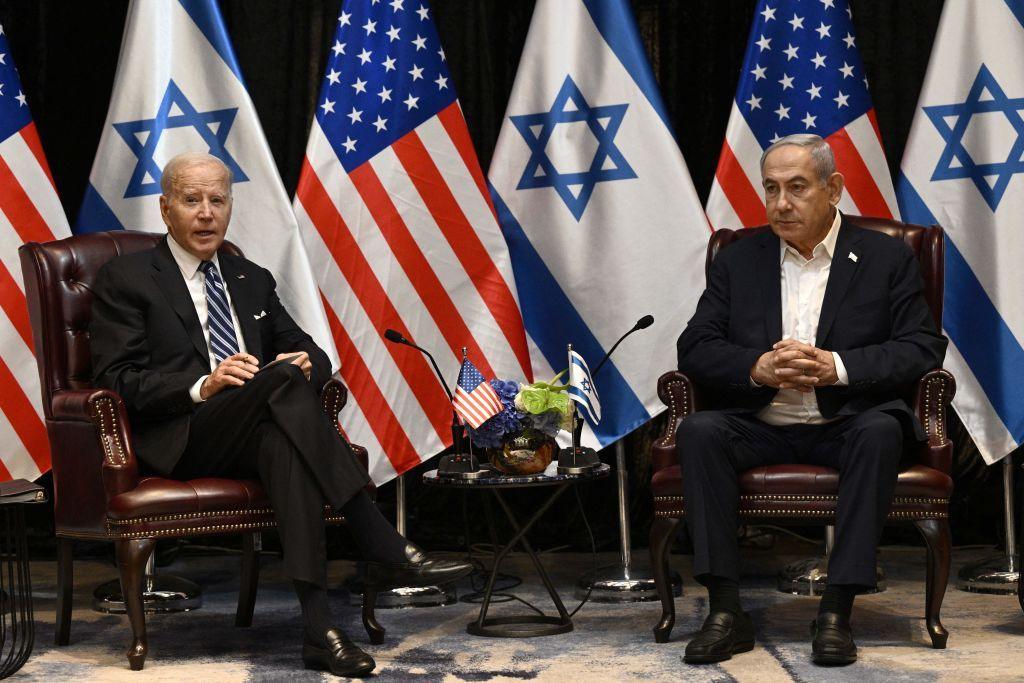
US President Joe Biden sits with Israel's prime minster, Benjamin Netanyahu in October 2023
The war between Israel and Hamas has caused strong reactions around the world.
The US and the UK say they support Israel's right to defend itself and to keep its people safe. In the UK Hamas is a "proscribed terrorist organisation", which means that it has been decided by governments that it is a terrorist group.
UK Prime Minister Keir Starmer has called for a ceasefire in the war and for talks to take place to try to stop the fighting: "A ceasefire that lasts. This is what must happen now. The fighting must stop now," he said.
Other leaders have criticised Israel's actions in Gaza.
Both Turkish president Recep Erdoğan and Spanish prime minister Pedro Sanchez have called Israel's military action in Gaza "disproportionate" - meaning they think it has gone too far.
Inside countries too there have been differences of opinion.
Cities in the UK, the US and Europe have seen large marches with protestors supporting Palestinians living in Gaza, and criticising Israel's actions.
Supporters of Israel have claimed that many of these protests are anti-Jewish.
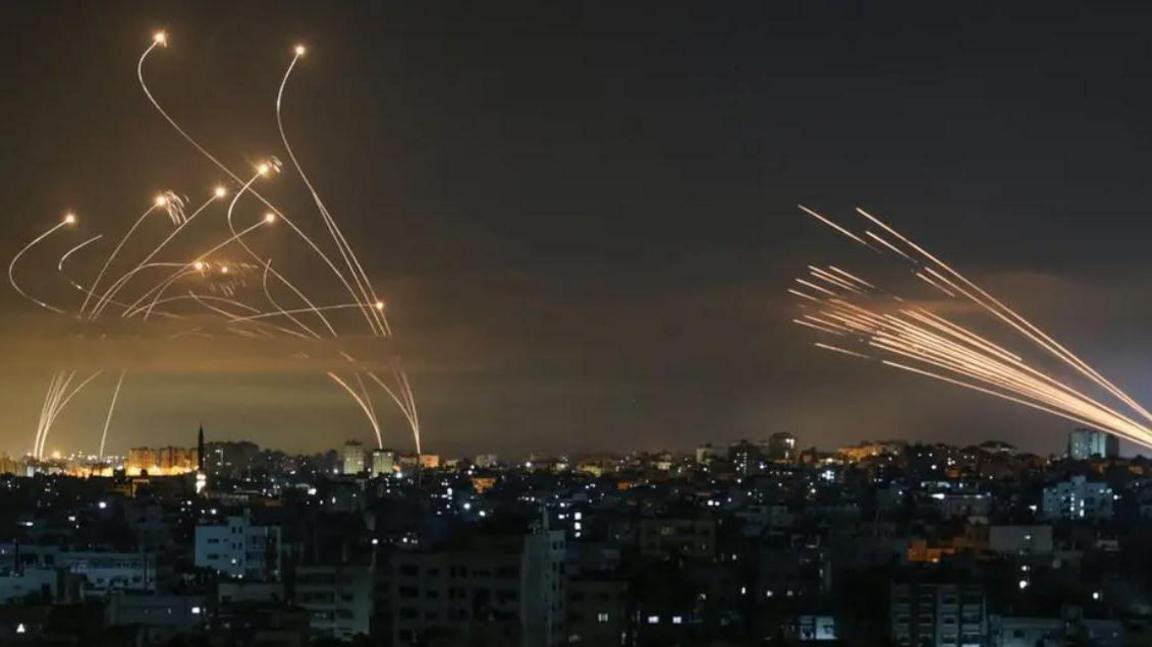
Missiles have been fired into Israel from Gaza, Lebanon and Iran
International organisations and many world leaders have also called for a pause in the fighting to allow for peace talks - to try to find a way to end what's happening .
Hamas and Israel's leaderships have not agreed to this and the conflict has spread into other areas.
Hezbollah - a powerful armed group based in Israel's neighbour Lebanon - and Israel have also been fighting. Hezbollah supports Hamas and has carried out attacks on Israel.
Israel has carried out air strikes and an invasion in Lebanon.
Also the middle eastern country of Iran - a supporter of Hamas and Hezbollah - has also fired missiles at Israel.
Aid and humanitarian support in Gaza
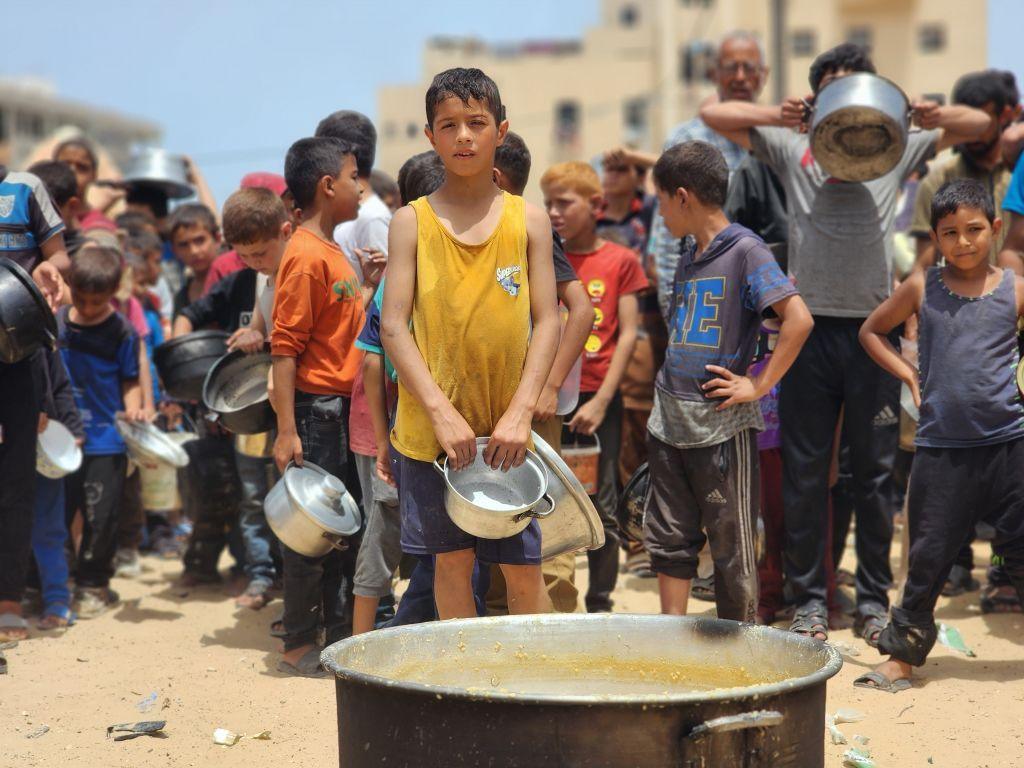
Children wait for food aid in Rafah in southern Gaza
Aid charities and the United Nations (UN) have often said that they are very worried about the humanitarian situation in Gaza - including its impact on children.
According to the charity Unicef, 90% of Gaza’s population has had to leave their homes, half of them children.
United Nations Coordinator for Humanitarian Action and Reconstruction in Gaza, Sigrid Kaag, said that although the systems to deliver aid to Gaza - via land and sea - were now in place, she warned that “We're not meeting the needs, let alone creating prospects and hope for the civilians in Gaza.”
"Not much else can be improved” until there is a ceasefire and the release of Israeli hostages still being held there, she said.
What happens next?
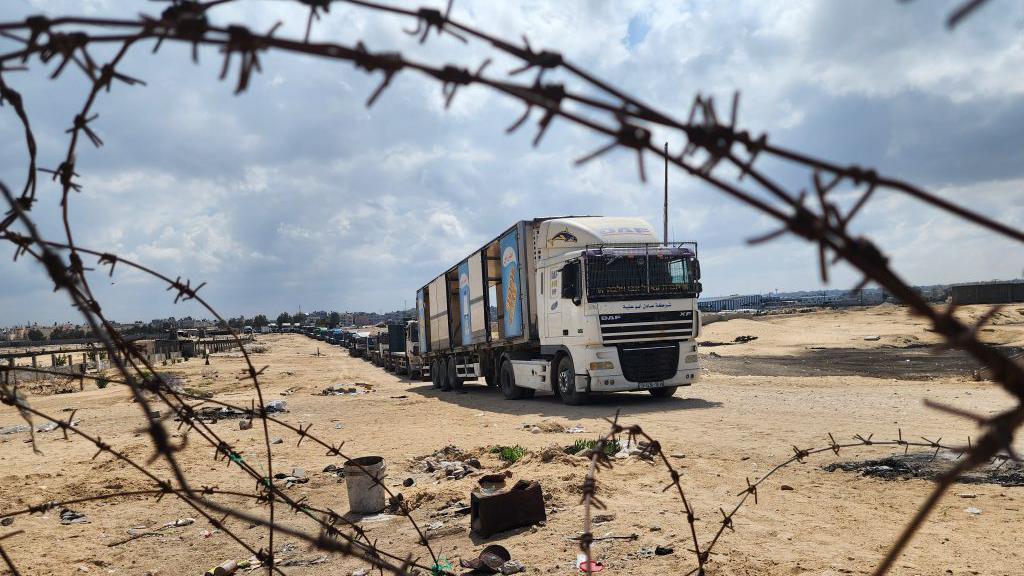
This war isn't the first conflict between Hamas and Israel and, in the past, peace deals have been agreed to end the fighting.
Many governments around the world are focused on trying to bring the current war to an end and to stop it from spreading and growing to involve more countries.
Joe Biden, President of the United States - one of Israel's strongest supporters - told the UN in early October that, with Qatar and Egypt, he had put forward a ceasefire and hostage deal:
"Now is the time for the parties to finalize its terms, bring the hostages home, secure security for Israel...ease the suffering in Gaza, and end this war."
Israeli prime minister Benjamin Netanyahu has said his priorities are a "total victory" over Hamas and returning the hostages to Israel.
Hamas has claimed it is ready to agree to a ceasefire but is demanding Israel's withdrawal from "all Gaza territories".
However in August 2024 it called hopes of progress on a ceasefire "illusions".
